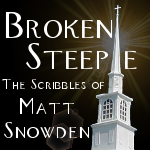Walking
with Christ: A Guide for Weekly Scripture Reading and Prayer
What is this?
We are busy people. Our days are jam-packed
with noise, demands, and obligations. Most of us long to be closer to Christ
and to each other, but we frankly don’t know where to start. We want our
families to spend quality time praying and reading Scripture together, but our
days are hectic and evening comes before we’re ready. As a church we will provide you a simple tool
to carry home each Sunday. This guide
will help you slow down, remember the message you heard, and engage the
biblical texts in a deeper way. It will
remind you to pray and reflect on God’s presence in your life each day.
Together we can strive to be a people who not only hear God’s word but allow it
to take root and transform our lives every single day.
What do I do with it?
The guide is divided into three points. You can do all three in one sitting or work
through one a day throughout the week. The guides can be used for personal
reflection or as a tool to use with your family or friends. Each session will conclude with a children’s challenge. This will give parents several ideas to help
bring the passage to life for the whole family.
September 2-8, 2012
John
15:9-15
To begin each exercise, spend a moment in
prayer, quieting your mind and asking God to speak through God’s Word. Read
John 15:9-15 slowly and as many times as you need to, in order to really hear
what is being said.
1. This
idea of being a friend of God is not unique to the gospel of John. Throughout
Scripture we see a God who initiates relationship, friendship even, with his
people. As we look at these passages throughout the week, we will recognize God
as the One who first offers himself to us. We will then ask what God requires
of us, as those who desire to engage in this dynamic, divine friendship.
Read
James 2:23.
Abraham
believed in God, it was counted to him as righteousness, and he was called a
friend of God. What does it mean that Abraham believed in God? He walked the earth before the law was given,
and before him no official covenant had been made. What was belief for Abraham?
To grasp this may help us understand how we too live into this friendship with
our God.
Read Genesis 12:1-4.
Who
initiates this conversation?
Who
offers the promise of commitment and faithfulness?
What is
the evidence that Abraham believed God?
God
comes to Abraham, a man of little significance and influence, and tells him to
leave all he knows, trusting that God has something in store for him greater
than Abraham could ever have imagined. “So Abram went, as the Lord had told
him”
God
offers Abraham a promise. Abraham listens.
And Abraham moves forward trusting that promise.
It seems
for Abraham belief was about more than just thinking the right things about
God. Belief was only complete when action was paired with understanding.
How will
your belief in God (in God’s character, in God’s promise, in God’s will) affect
your actions today?
Abraham’s life shows that a
friend of God believes in God. True belief will always incite us to
action.
2.
Read Exodus 33:11.
Moses, too, experienced this friendship with
the Living God. We catch a glimpse of how this friendship developed by looking
back at Moses’ call.
Revisit
this story in Exodus 3-4.
According
to Exodus, 3:1-2 who initiates this conversation?
According
to Ex 3:7-9 who offers the promise of deliverance and faithfulness?
How does
Moses’ response to God differ from Abraham’s?
How is it similar?
Like Abraham, Moses took the
time to listen to God’s voice. He
actually turned off the beaten path and marveled at that burning bush until the
Lord spoke from within it. In your relationship with God, do you consistently
take the time to stop moving, stop talking, and simply marvel and listen? Take
a moment to do so even now.
From his listening Moses
heard a difficult word. He did not accept it without further thought or
negotiation like Abraham. Instead he argued and offered other solutions. In the
end, however, he followed. He stood before Pharaoh, then before the parted sea,
and then before God and all the people.
There is
room for genuine dialogue in a friendship with God. Not that Moses handled the situation well,
but in the midst of his doubts and fears, God still extended the invitation to
be God’s friend.
It seems
Moses’ friendship with God was the result of a willingness to listen, the
courage to engage and dialogue, and ultimately the trust to follow.
How will you carve out space
to listen to God this week?
In which
ways are you currently dialoguing with God concerning what God is calling you
to do?
Are you
willing to follow, no matter how this dialogue ends?
If so,
we may be considered the ones who speak to God as one friend speaks to another!
3. Read Matthew 11:19.
Jesus
continues this tradition of the God who initiates friendship with humankind. As
he walked the earth, Jesus noticed those who needed him most and took the time
to enjoy a meal with them. The tax collectors and sinners were invited to
reciprocate this act of friendship by following Jesus as he left their home and
went on his way.
If Jesus walked the streets
of your neighborhood today, can you imagine him choosing to knock at your
door? Of all the people he could eat
with, can you imagine him choosing to eat at your table? Today, ask God to help you believe that God
really does choose you to be a friend.
Imagine your meal with Jesus
coming to an end. He gets up, ready to
move on to the next place. Where is
going? Are you willing to follow?
To be a friend of God we must
be with God. Just as God has chosen to
be with us spiritually and physically,
we too are asked to be fully with Him. Are you with God? God is most definitely with you!
Children’s
Challenge:
·
Ask your child what it means to believe
something. Explain how the things you
believe affect the way you act. For
example, if you believe the brakes on your car really work, then you’re willing
to drive 70 miles/hour on a highway. If you believe your paycheck will come at
the end of the month, then you will pay your bills this month. And if you believe
your child will make good choices, then you will allow him/her to have some
independence. Explain how it is the same
with God. If we really believe God loves
us and cares for us, then we will live in a way that pleases God.
·
Tell your child about your best friend growing
up. What made this friend so
special? What did you enjoy doing
together? What did you talk about? How is your friendship with God similar? How do you want your friendship with God to
grow?
·
Ask your child to describe one of his/her
friends. Ask if they would be friends if
they never saw each other and never talked.
Explain how our friendship with God is not so different. For it to grow we have to make time to really
be with God. Tell your child how you
make time to be with God.


.jpg)









